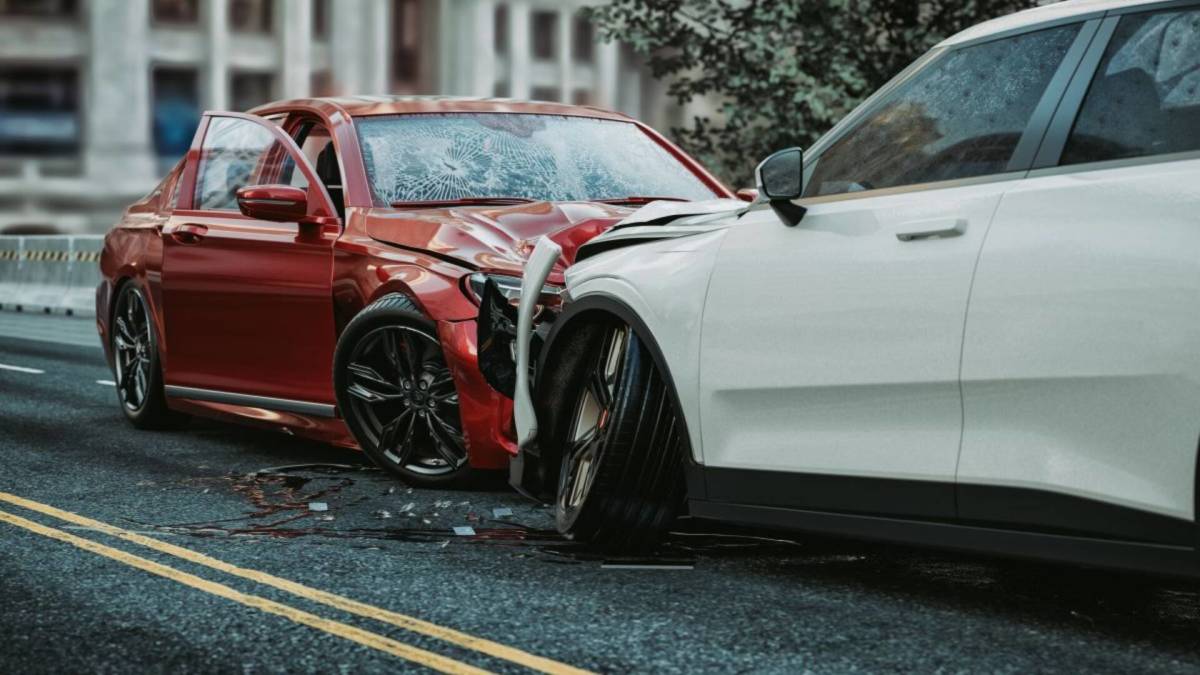Why Is My Car Insurance So Expensive?

TheStreet aims to feature only the best products and services. If you buy something via one of our links, we may earn a commission.
If your car insurance rates skyrocketed this year, you’re not alone. The cost of coverage increased 16.4% year over year in September, according to U.S. Bureau of Labor Statistics data. Two big reasons are a rise in road accidents and cars that are pricier to repair.
“What used to be a $500 fender bender is now tens of thousands of frame damage,” says Ezra Peterson, senior director of insurance for car ownership platform Way.com. Peterson says features such as crumple zones protect drivers but can damage vehicles extensively, even in minor accidents. Other technologies like collision-avoidance systems and lane-assist steering are also expensive to repair and replace.
DON'T MISS: Important car insurance information you need to know:
• Depending on where in the U.S. you live, car insurance may continue to climb in 2025 and beyond.
• Can you get car insurance for $100 a month?
• Average car insurance rates by ZIP code, with calculator
Carriers are being choosier about who they insure and how much they charge, says Colleen Parsons, a client advisor for World Insurance Associates in Rochester, New York. “We’ve had some insurers just completely pull out of the state here in New York,” she says.
Related: How you can buy car insurance now
Elsewhere in the U.S., signs indicate a flattening of car insurance premiums in 2025. “For the first time in years, we’ve seen some rate filings that are actual rate decreases,” Peterson says.
Two cars shown in a head on collision.Shutterstock
Reasons why your car insurance is so expensive
Two major factors influence car insurance rates. One is what Peterson describes as the “law of large numbers,” or overall industry trends and claims by other drivers. The other relates to your personal circumstances.
Driving record and claims history. Your driving record and insurance rates are closely related. Even if you haven’t had an accident, a poor driving record with multiple tickets could mean insurers see you as a risk for filing a claim in the future. For example, a driver with one at-fault accident on their record may see their premium increase by as much as 53%, according to CarInsurance.com data.
Where you live and park your vehicle. If you live in an area with heavy traffic or high rates of theft or accidents, insurers will see you as a greater claims risk. Similarly, if you park your vehicle on the street instead of in a secured lot or garage, you may pay more for insurance coverage.
Vehicle make, model, and year. There is also a link between vehicle type and car insurance premiums. Newer cars, particularly sports and luxury models, can be costly to repair because of the pricey components they contain. Insurers also look at a vehicle’s crashworthiness. A positive crash safety score from an independent agency like the Insurance Institute for Highway Safety can make an auto cheaper to insure.
DON'T MISS: More from TheStreet on car insurance:
- Cheapest car insurance companies in 2024
- Will my insurance go up if I move?
- What is the penalty for driving without insurance in your state?
Age. The youngest drivers, who are also the most inexperienced and thus more likely to be involved in an accident, are the most expensive age group to insure. On average, those aged 16 to 19 pay the most; rates decline slightly for those aged 20 to 24. Premiums continue to decline until age 65, when they begin to rise again.
Related: Why the first car insurance quote isn’t always the best
Credit history. Your credit score and car insurance premium can also be linked. If you have a good credit score, insurance rates may be lower. On the other hand, someone with poor credit may be viewed as more likely to file claims and thus a greater risk to insure. California, Massachusetts, Hawaii, Maryland, and Washington are among a handful of states that ban using credit histories when setting car insurance rates.
Two drivers are shown following a car crash.Shutterstock
How to Lower Your Expensive Car Insurance Premiums
Learn how to lower car insurance rates by controlling your driving habits and adjusting your policy details. Try these tips for reducing insurance premiums.
- Drive safely. “Keep your driving record as clean as possible,” Peterson says. Car insurance companies save their best rates for drivers without tickets or accidents.
- Raise deductibles. The deductible is how much you pay out of pocket when filing a claim. Raising your deductible to $1,000 or even $1,500 or more can result in a premium discount.
- Stay insured. Don’t let your coverage lapse since that can raise rates when you apply for coverage again, Peterson says. You may also be subject to penalties for going without coverage.
- Look for discounts. Common discounts include bundling policies, taking a driver safety course, and renewing early.
- Compare quotes. It’s a good idea to periodically check to see if another insurer may give you a better deal. An independent insurance agent online car insurance comparison tool can streamline this process.
Related: Veteran fund manager sees world of pain coming for stocks


